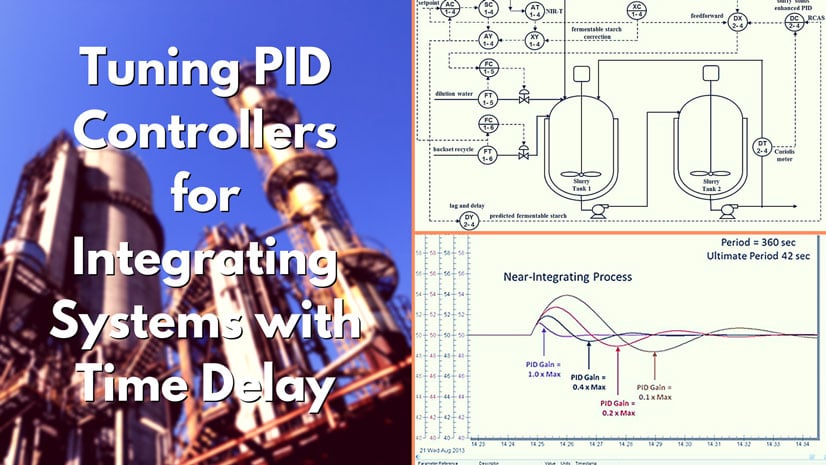This post is an excerpt from the journal ISA Transactions. All ISA Transactions articles are free to ISA members, or can be purchased from Elsevier Press.

Abstract: Design of Proportional Integral and Derivative (PID) controllers based on internal model control (IMC)) principles for various types of integrating systems with time delay is proposed. PID parameters are given in terms of process model parameters and a tuning parameter. The tuning parameter is IMC filter time constant. In the present work, the IMC filter (Q) is chosen in such a manner that the order of the denominator of IMC controller is one less than the order of the numerator. The IMC filter time constant (λ) is tuned in such a way that a good compromise is made between performance and robustness for both servo and regulatory problems. To improve servo response of the controller a set point filter is designed such that the closed loop response is similar to that of first order plus time delay system. The proposed controller design method is applied to various transfer function models and to the non-linear model equations of jacketed CSTR to demonstrate its applicability and effectiveness. The performance of the proposed controller is compared with the recently reported methods in terms of IAE and ITAE. The smooth functioning of the controller is determined in terms of total variation and compared with recently reported methods. Simulation studies are carried out on various integrating systems with time delay to show the effectiveness and superiority of the proposed controllers.
Free Bonus! To read the full version of this ISA Transactions article, click here.
Enjoy this technical resource article? Join ISA and get free access to all ISA Transactions articles as well as a wealth of other technical content, plus professional networking and discounts on technical training, books, conferences, and professional certification.
Click here to join ... learn, advance, succeed!
2006-2018 Elsevier Science Ltd. All rights reserved.




